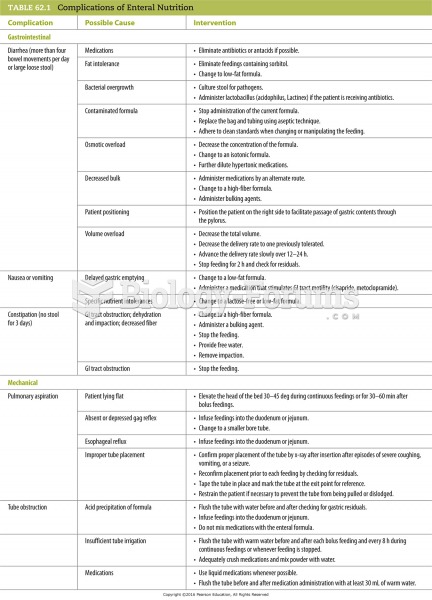|
|
|
Vital signs (blood pressure, temperature, pulse rate, respiration rate) should be taken before any drug administration. Patients should be informed not to use tobacco or caffeine at least 30 minutes before their appointment.
When blood is exposed to air, it clots. Heparin allows the blood to come in direct contact with air without clotting.
It is difficult to obtain enough calcium without consuming milk or other dairy foods.
Medication errors are more common among seriously ill patients than with those with minor conditions.
The liver is the only organ that has the ability to regenerate itself after certain types of damage. As much as 25% of the liver can be removed, and it will still regenerate back to its original shape and size. However, the liver cannot regenerate after severe damage caused by alcohol.







